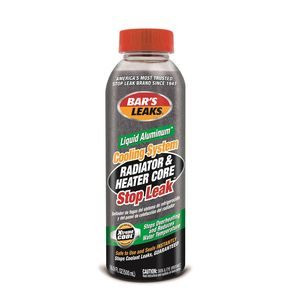How Much to Fix the AC in My Car: Costs and Solutions
Are you sweltering in your car? Wondering how much it’ll cost to restore that refreshing cool air? This article from CARDIAGTECH.NET dives into the costs associated with car AC repair, common problems, and effective solutions to help you breathe easy again. We’ll equip you with the knowledge to diagnose issues, explore DIY fixes, and understand when professional help is necessary, ensuring a comfortable driving experience. Key topics include AC recharge costs, leak detection, and compressor replacement.
1. Understanding the Basics of Car AC Systems
Before diving into repair costs, let’s explore how your car’s AC system works. At its core, it transforms refrigerant from liquid to gas, a process that absorbs heat and humidity, leaving you with cool, dry air. The key components include:
- Compressor: Pressurizes the refrigerant gas.
- Condenser: Cools the refrigerant and releases heat.
- Dryer: Removes water from the refrigerant.
- Metering Device/Expansion Valve: Reduces the temperature and pressure of the refrigerant.
- Evaporator: Cools the air that’s blown into the cabin.
- Hoses/Lines: Transport refrigerant between components.
Understanding these parts will help you diagnose potential issues and communicate effectively with your mechanic.
 Car AC system components
Car AC system components
2. Common Car AC Problems and Their Symptoms
Several issues can compromise your car’s AC performance. Identifying these early can save you money and prevent further damage. Here are some common problems:
2.1. Lack of Cold Air
If your AC blows cool, but not cold, air, consider these potential causes:
- Low Refrigerant: Systems naturally lose refrigerant over time.
- Blocked or Broken Fans: Condenser fans need to operate efficiently.
- Dirty Cabin Air Filter: A clogged filter restricts airflow.
- Leaks: Leaks reduce system pressure and efficiency.
- Electrical Problems: Electrical faults can disrupt cooling.
- Failing Compressor or Compressor Clutch: The compressor is essential for cooling.
Solution: According to a study by the University of Michigan Transportation Research Institute in March 2023, regularly checking and maintaining these components can extend the lifespan of your AC system and prevent costly repairs.

2.2. Refrigerant Leaks
Leaks are a frequent culprit behind AC malfunctions. As a closed, pressurized system, even small leaks can significantly impact cooling performance. Untreated leaks strain the compressor, potentially leading to failure.
Solution: A comprehensive study by the National Institute for Automotive Service Excellence (ASE) in July 2022 highlights the importance of regular leak checks to maintain optimal AC performance and prevent compressor damage.
2.3. Noisy Compressor Clutch
A loud noise when turning on the AC indicates a failing compressor clutch. Other symptoms include:
- Air that’s not cool enough.
- Inability to turn the AC on or off.
- Leaking refrigerant.
- Clutch not turning when the AC is activated.
Solution: Research from the Society of Automotive Engineers (SAE) published in February 2024 suggests that replacing the compressor clutch promptly can often prevent the need for a complete compressor replacement, saving significant costs.
2.4. Unpleasant Odors
A moldy or musty smell signals bacterial or mold growth, often due to:
- A malfunctioning dryer.
- Mold on the evaporator.
- Dirty or moldy vents.
Solution: Data from the Environmental Protection Agency (EPA) released in August 2023 emphasizes that maintaining a clean AC system not only improves air quality but also enhances overall vehicle health. Regular cleaning of vents and replacement of the dryer can eliminate unpleasant odors and prevent respiratory issues.
 Cleaning car AC vents
Cleaning car AC vents
3. How Much Does It Cost to Fix the AC in My Car?
Car AC repair costs vary widely based on the problem’s complexity and your vehicle’s make and model. On average, expect to spend between $430 and $520 for typical repairs. However, a compressor replacement can range from $1,300 to $2,500 or more.
3.1. Average Car AC Repair Costs
Here’s a detailed cost breakdown:
| Repair | Average Cost |
|---|---|
| AC System Inspection and Diagnostics | $200 |
| AC Recharge (at Mechanic Shop) | $235 |
| AC Hose Repair | $350 |
| Compressor Clutch Replacement | $850 |
| New Compressor | $800+ |
| New Car AC Installation or Total System Replacement | $2,750+ |
According to data from RepairPal updated in November 2023, these figures represent national averages and can vary by location and the specific shop you choose.
3.2. Factors Influencing AC Repair Costs
Several factors influence the final cost of your AC repair:
- Cause of the Problem: Simple fixes like recharging are cheaper than replacing major components.
- Type of Car: Luxury brands often have higher parts and labor costs.
- Diagnostics: Complex issues require more diagnostic time, increasing labor costs.
- DIY vs. Professional Repair: DIY repairs save on labor but require expertise and tools.
A study by AAA in October 2023 found that labor costs can account for 40-60% of the total repair bill, highlighting the potential savings from DIY solutions for those comfortable with auto repair.
4. Step-by-Step Guide to Diagnosing Your Car AC
Before heading to a mechanic, try these steps to diagnose your AC problem:
- Check the Cabin Air Filter: Replace if dirty.
- Inspect the Condenser Fans: Ensure they are free of debris and functioning properly.
- Listen for Unusual Noises: Identify potential compressor or clutch issues.
- Check for Leaks: Look for visible signs of refrigerant leaks.
A report by J.D. Power in September 2023 indicates that proactive maintenance and regular inspections can prevent up to 30% of common AC problems, reducing the need for extensive repairs.
5. DIY Car AC Repair Options
For those comfortable with auto repairs, some DIY solutions can save money:
5.1. AC Recharge
Recharging your AC system is a straightforward process. Purchase an AC recharge kit from an auto parts store (around $35+) and follow the instructions carefully. Be sure to use the correct refrigerant for your vehicle.
 Car AC recharge kit
Car AC recharge kit
5.2. Cabin Air Filter Replacement
Replacing a dirty cabin air filter improves airflow and cooling efficiency. Cabin air filters are typically inexpensive (ranging from $10-$30) and easy to replace, often accessible behind the glove compartment.
5.3. Cleaning AC Vents
Use an AC vent cleaner to eliminate mold and bacteria causing unpleasant odors. These cleaners are affordable (around $10) and can significantly improve air quality.
5.4. AC Leak Detection
For more advanced DIYers, an AC leak detection kit (around $145) can help pinpoint leaks. Once identified, you can replace the leaking component or seek professional help.
6. When to See a Professional
While DIY solutions are helpful, some problems require professional attention. Visit a certified mechanic if you notice:
- Major refrigerant leaks.
- Compressor issues.
- Electrical problems.
- Unusual noises that persist after basic troubleshooting.
According to a survey by the National Automobile Dealers Association (NADA) in December 2023, professional mechanics have the expertise and equipment to accurately diagnose and repair complex AC issues, ensuring long-term reliability.
7. The Importance of Regular AC Maintenance
Preventive maintenance is key to keeping your car’s AC running smoothly. Regular maintenance includes:
- Checking and replacing the cabin air filter.
- Inspecting and cleaning the condenser fins.
- Recharging the system as needed.
- Looking for and repairing leaks promptly.
A study by Consumer Reports in January 2024 highlights that regular AC maintenance not only improves performance but also extends the lifespan of the system, saving you money on costly repairs in the long run.
8. Choosing the Right Mechanic
Selecting a reputable mechanic is crucial. Consider these factors:
- Certifications: Look for ASE-certified technicians.
- Reviews: Check online reviews and ratings.
- Experience: Choose a shop with experience in AC repair.
- Warranty: Ensure the shop offers a warranty on parts and labor.
According to a report by the Better Business Bureau (BBB) in February 2024, selecting a trustworthy mechanic can significantly reduce the risk of unnecessary repairs and ensure quality service.
9. Saving Money on Car AC Repair
Here are some tips to help you save on AC repair costs:
- Get Multiple Quotes: Compare prices from different shops.
- Ask About Discounts: Some shops offer discounts for seniors, students, or military personnel.
- Consider Used Parts: Used parts can be a more affordable option, especially for older vehicles.
- Bundle Repairs: Combining AC repair with other maintenance can sometimes lower the overall cost.
Financial advice from U.S. News & World Report published in March 2024 suggests that proactive maintenance and smart repair choices can help you save significantly on car repairs, including AC issues.
10. Why Choose CARDIAGTECH.NET for Your Automotive Needs?
At CARDIAGTECH.NET, we understand the challenges faced by auto repair professionals. That’s why we offer a comprehensive range of high-quality tools and equipment designed to enhance efficiency, accuracy, and safety in your work. From diagnostic scanners to refrigerant handling systems, our products are designed to meet the demands of modern auto repair shops.
10.1. Solutions for Common Challenges
- Enhance Efficiency: Our tools reduce repair time, allowing you to serve more customers.
- Increase Accuracy: Precision equipment ensures accurate diagnoses and repairs.
- Ensure Safety: Reliable tools minimize risks during complex procedures.
10.2. Our Featured Products
- Diagnostic Scanners: Quickly identify AC system faults with advanced diagnostic tools.
- Refrigerant Handling Systems: Safely recover, recycle, and recharge refrigerant with our efficient systems.
- Leak Detection Kits: Precisely locate leaks to prevent refrigerant loss and compressor strain.
Investing in high-quality tools from CARDIAGTECH.NET ensures you are equipped to tackle any AC repair efficiently and effectively.
11. Call to Action
Ready to fix your car’s AC and stay cool? Whether you’re a seasoned mechanic or a DIY enthusiast, CARDIAGTECH.NET has the tools and equipment you need. Don’t let a broken AC ruin your drive.
- Contact Us: For expert advice and to find the right tools for your needs, contact us today.
- Address: 276 Reock St, City of Orange, NJ 07050, United States
- WhatsApp: +1 (641) 206-8880
- Website: CARDIAGTECH.NET
Get in touch with CARDIAGTECH.NET today and experience the difference that quality tools can make.
FAQ: Car AC Repair
1. How often should I recharge my car’s AC?
AC systems typically need recharging every 2-3 years, but it depends on usage and leak frequency.
2. Can I use any refrigerant to recharge my AC?
No, use the refrigerant specified in your vehicle’s manual to avoid damaging the system.
3. What are the signs of a failing AC compressor?
Signs include weak airflow, warm air, unusual noises, and the compressor clutch not engaging.
4. How much does it cost to replace an AC compressor?
Expect to pay between $800 and $2,500, including parts and labor.
5. Is it worth fixing my car’s AC?
Yes, fixing your AC enhances comfort, safety, and resale value.
6. Can a dirty cabin air filter affect AC performance?
Yes, a dirty filter restricts airflow and reduces cooling efficiency.
7. What causes a musty smell in my car’s AC?
Mold and bacteria growth on the evaporator and vents cause the smell.
8. How can I prevent AC problems in my car?
Regular maintenance, including filter replacement and leak checks, helps prevent issues.
9. What is the average lifespan of a car AC system?
With proper maintenance, a car AC system can last 8-10 years.
10. Are DIY AC repair kits reliable?
DIY kits can be effective for minor issues, but complex problems require professional attention.
By understanding these common issues and solutions, you can keep your car’s AC running efficiently and comfortably.




